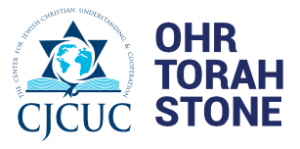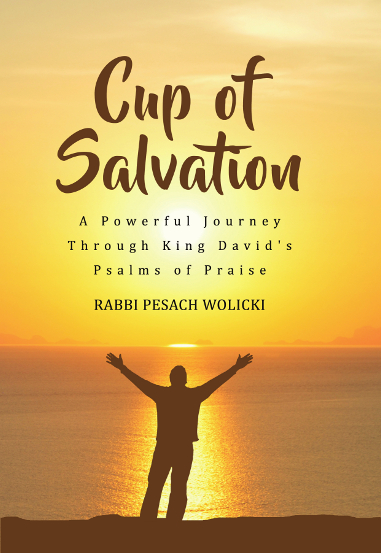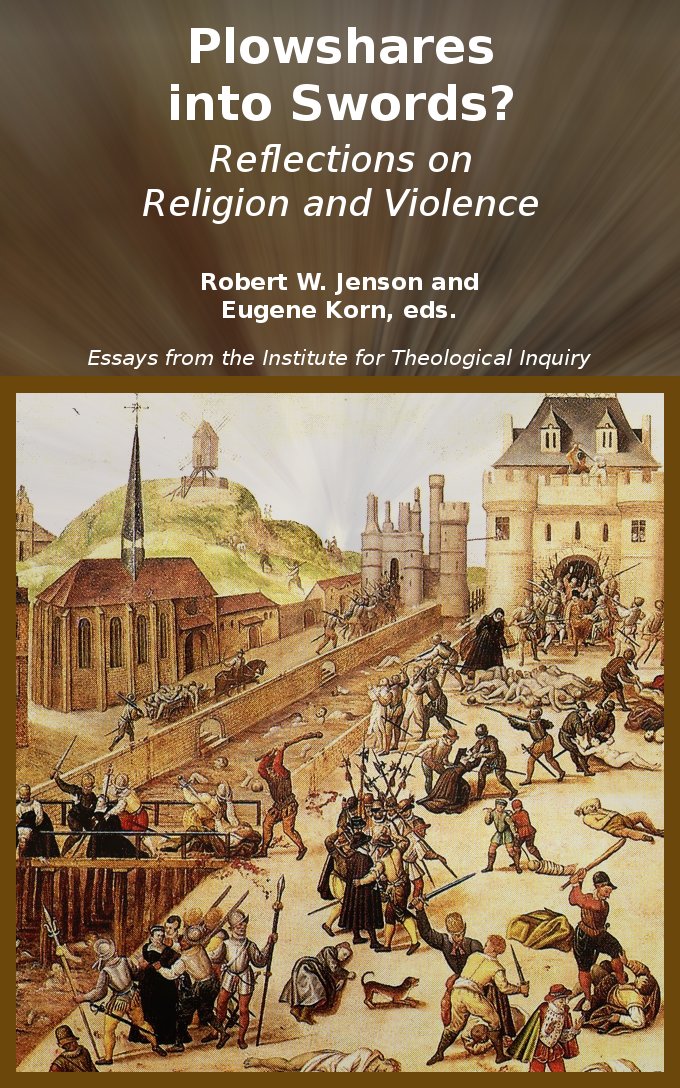The People Israel, Christianity and the Covenantal Responsibility to History
By Rabbi Dr. Eugene Korn
To be a member of God’s covenant with the Jewish people—to be a ben berit—is to live in the unfolding of sacred history. The drama began at twilight of the sixth day, when God created Adam with a unique holiness, inscribing him with Tzelem Elohim (Imago Dei). It progressed through Noah, Abraham and revelation at Sinai. It continues through today, and will end in the messianic era, when all persons recognize the reality of God and His[1] moral authority. And as the prophets Isaiah, Micah, and Zachariah taught, only when all the world lives in blessing and tranquility will the Jewish people fulfill the sacred covenant that God made with Abraham and his descendants. The call of the covenant is to be a partner with the Divine in completing creation and an essential actor in the story of humanity.
God’s covenant with the Jewish people at Sinai would be meaningless without this historical mandate. A divine covenant with individuals whose purpose is personal redemption is possible without a historical dimension, but the God of history’s covenant with an eternal people assumes purpose only if the covenantal people has an enduring mission over the sweep of time.
The Covenant with Israel
_____________________________
expand to “teaching the way of the Lord, to do righteousness and justice (tsedakah u-mishpat).” (Gen. 18:19) This covenant is passed down to Isaac and Jacob through the generations as told in Genesis, and the family covenant blossoms into a national covenant between God and the entire Jewish people with revelation at Sinai, where Jewish tradition has taught that God gave the Jewish people the whole of the written Torah and its 613 commandments.[1] Rabbinic tradition understands the Sinai covenant to be an extension of Abraham’s covenant in Genesis, i.e. they are theologically and spiritually identical though varying in detail.[2] The revelation of the Torah at Sinai to Abraham’s descendants was but a fuller expression of the original covenant with Abraham in Canaan.[3] In other words, in the rabbinic mind Abraham is Israel and Israel is Abraham.
Jews understand themselves theologically as a covenantal people. It is the Sinai covenant that provides the content, meaning and commitment to the Jewish people’s faith in God. The commandments are the covenantal terms that shape Jewish spiritual life. They are, in the language of Jewish liturgy, “our lives and the length of our days.” And it is the experience of revelation Sinai together with the definition and application of the Sinaitic commandments (Jewish Law or “halakhah”) that form the foundation for daily Jewish religious intellectual endeavor and Judaism’s religious worldview.
The covenant also establishes an intimate personal relationship between God and His people. Like all forms of intimacy the covenantal relationship is particularistic and forms an exclusivist
__________________________________
relationship between the partners. This is why the biblical prophets repeatedly use the metaphor of marriage to describe the covenant between God and the Jewish people. The sanctity of marriage lies precisely in the fact that husband and wife are devoted exclusively to each other. Because it is an exclusive relationship, the covenant’s benefits accrue only to the Jewish people and the responsibilities of the covenantal commandments do not apply to the rest of humanity in the eyes of normative rabbinic thinkers. Jewish theology was true to the biblical narrative and, unlike Christianity, did not try to universalize God’s covenant with Israel. Quite the contrary, for the Talmud and Jewish law (halakhah) were suspicious of gentiles who studied Torah and followed the Sinai commandments, viewing them metaphorically as third parties adulterously intruding on the intimate betrothal between God and Israel.[1]
This understanding of Israel’s covenant exposes a literary problem in the biblical story and it can easily lead to a deeper theological problem. As do all identity-forming relationships, the covenant erects boundaries, and thereby it creates an insider/outsider dichotomy. Jews are in the covenant under God’s parental care; all else are “Other.” If so, what are we to make of God’s relationship with those outside my parochial covenant? The Bible seems to reinforce this challenge since once Abraham appears in the biblical narrative Hebrew Scriptures become almost an exclusive Jewish story. From Genesis 12 through Chronicles, the Bible is a history of the successes, failures and journeys of the people of Israel. If gentiles appear at all, they are in the background. With the arrival of Abraham, then, the original grand cosmic drama of creation piercing the farthest corners of heaven and earth shifts with shocking discontinuity to a local family narrative.
On the theological level, God’s singular concern with his covenantal people severely narrows divine involvement with his cosmic creation. Throughout the Bible, both covenantal partners are so lovesick with each other that they appear to leave the universe behind; those outside the covenant merit neither prolonged divine nor Jewish concern. Abraham’s travel from Haran to Canaan transformed not only Abraham, but also his divine partner. Sometime during Abraham’s journey to Canaan, the majestic all-caring Creator of humanity voluntarily diminished Himself and became a demanding and protecting Father of the nation alone. Where is the Author of creation, the God of resplendent holiness, whose glory fills the entire universe and whose concern extends to all His children? God, it seems, has “gone ethnic.”
Living the covenant faithfully requires intense focus on performing the mitsvot,the behavioral commandments that connect the Jewish people to their God and individual Jews to their kin. As a result, Jews can easily interpret the covenant as demanding that they be a people “who dwells apart, not reckoned among the nations” (Num. 23:9) in splendid isolation from the rest of the
__________________________________
world.[1] And certainly the Jewish historical experience in exile amongst the nations conduces toward this withdrawal theology. Today Jews are a traumatized people. The deep wounds inflicted by the harsh historical oppressions of Rome, the Church, the Tsars, the Nazis, the Communists and the current widespread Muslim hostility to Israel easily lead some religious and nationalist Jewish thinkers to idealize isolation from world affairs. It seems that whenever Jews engaged with the world, Jewish blood ran in the streets. Thus it is quite natural for the Jewish people to turn inward and to elevate survival to its primary religious value.
This inward gaze is expressed poignantly by a central part of the daily Jewish liturgy:
My God, guard my tongue from evil and my lips from deceitful speech. To those who curse me, let my soul be silent; may my soul be to all like the dust. Open my heart to Your Torah and let my soul pursue Your commandments. As for all who plan evil against me, swiftly thwart their counsel and frustrate their plans. Act for the sake of Your name; act for the sake of Your right hand; act for the sake of Your Torah. That Your beloved ones may be delivered, save with Your right hand and answer me. May the worlds of my mouth and the meditation of my heart find favor before You, Lord, my Rock and Redeemer. May He who makes peace in His high places, make peace for us and all Israel –and say: “Amen.”[2]
This is the final paragraph of the eighteen blessings-prayers that religious Jews recite three times daily as they formally stand before God. As such, it represents the culmination of a Jew’s personal petition to God. Note its major aspirations:
- personal piety
- individual and national deliverance from hostile enemies
- personal observance of the divine commandments (Torah)
- peace for all Israel
The prayer’s spiritual vision is cautious and restricted. The penitent sees the outside world not as a blessed manifestation of God’s creation, but as wholly Other: an existential threat to him and the Jewish people (“Your beloved”). The fervent plea is for God to act as the deliverer of the Jewish people and carrier of peace to Israel, not the Father of all humanity. The religious dream is personal piety unconnected to its impact on the world. Indeed, God’s infinite creation as the arena of religious wonder and covenantal challenge has been left behind.
__________________________________


